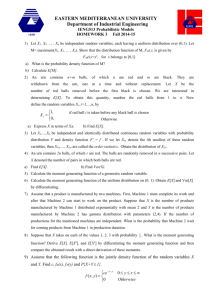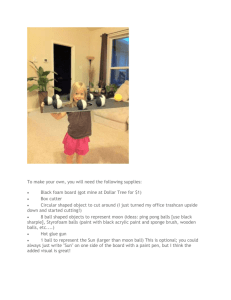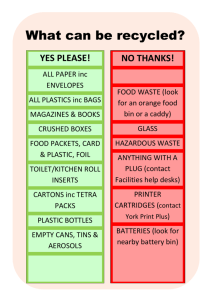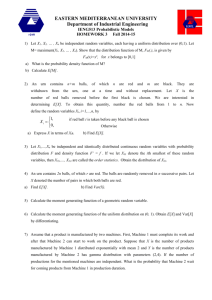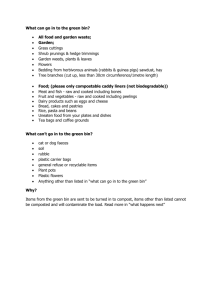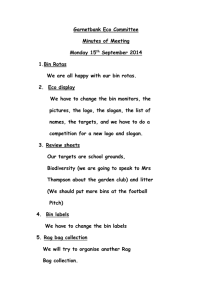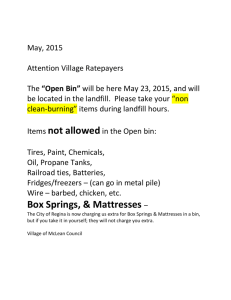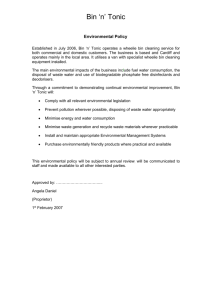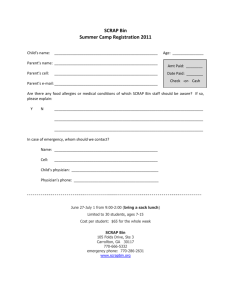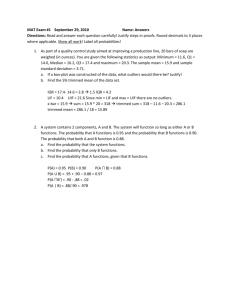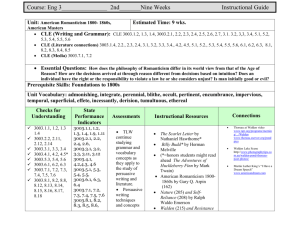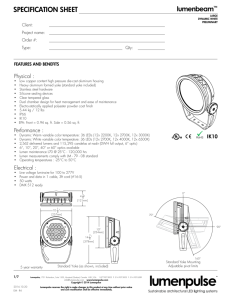MAT 107
advertisement
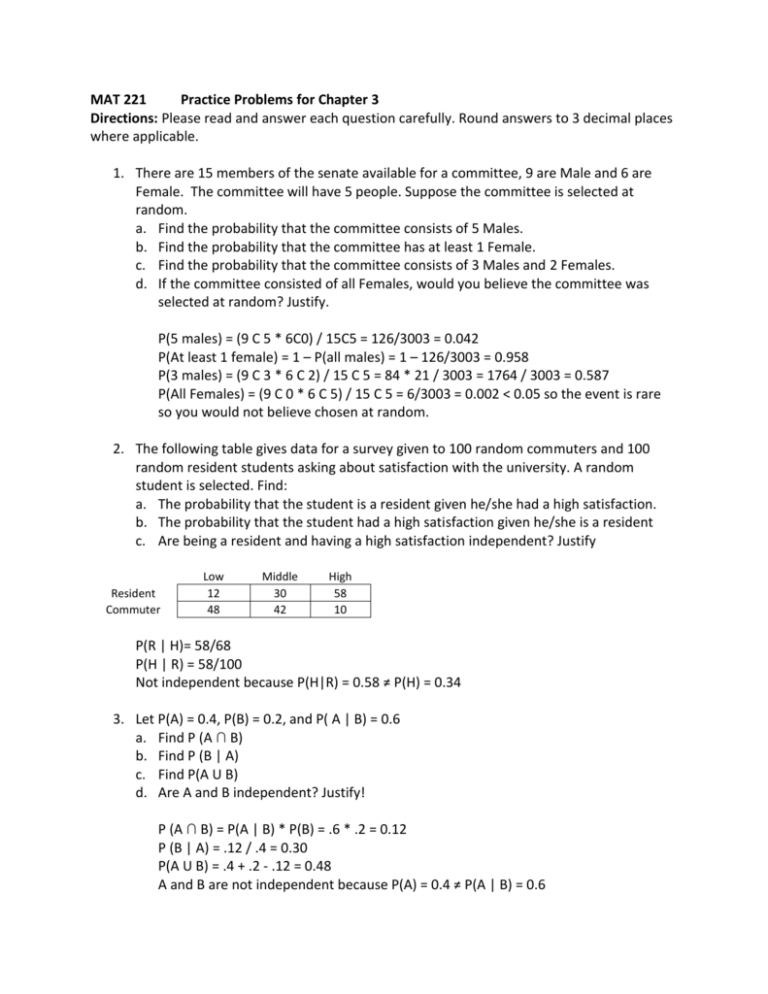
MAT 221 Practice Problems for Chapter 3 Directions: Please read and answer each question carefully. Round answers to 3 decimal places where applicable. 1. There are 15 members of the senate available for a committee, 9 are Male and 6 are Female. The committee will have 5 people. Suppose the committee is selected at random. a. Find the probability that the committee consists of 5 Males. b. Find the probability that the committee has at least 1 Female. c. Find the probability that the committee consists of 3 Males and 2 Females. d. If the committee consisted of all Females, would you believe the committee was selected at random? Justify. P(5 males) = (9 C 5 * 6C0) / 15C5 = 126/3003 = 0.042 P(At least 1 female) = 1 – P(all males) = 1 – 126/3003 = 0.958 P(3 males) = (9 C 3 * 6 C 2) / 15 C 5 = 84 * 21 / 3003 = 1764 / 3003 = 0.587 P(All Females) = (9 C 0 * 6 C 5) / 15 C 5 = 6/3003 = 0.002 < 0.05 so the event is rare so you would not believe chosen at random. 2. The following table gives data for a survey given to 100 random commuters and 100 random resident students asking about satisfaction with the university. A random student is selected. Find: a. The probability that the student is a resident given he/she had a high satisfaction. b. The probability that the student had a high satisfaction given he/she is a resident c. Are being a resident and having a high satisfaction independent? Justify Resident Commuter Low 12 48 Middle 30 42 High 58 10 P(R | H)= 58/68 P(H | R) = 58/100 Not independent because P(H|R) = 0.58 ≠ P(H) = 0.34 3. Let P(A) = 0.4, P(B) = 0.2, and P( A | B) = 0.6 a. Find P (A ∩ B) b. Find P (B | A) c. Find P(A U B) d. Are A and B independent? Justify! P (A ∩ B) = P(A | B) * P(B) = .6 * .2 = 0.12 P (B | A) = .12 / .4 = 0.30 P(A U B) = .4 + .2 - .12 = 0.48 A and B are not independent because P(A) = 0.4 ≠ P(A | B) = 0.6 4. There are 2 bins that each contain 10 balls. Bin 1 has 7 Red and 3 Green balls. Bin 2 has 6 Red and 4 Green balls. First the player selects a bin. The probability that the player selects Bin 1 is ¾ and the probability that the player selects Bin 2 is ¼. The player then randomly selects 1 ball from the bin.? a. If urn 1 was selected, find the probability that a Red ball is selected. b. If urn 2 was selected, find the probability that a green ball is selected. c. If a Red ball was selected, find the probability that urn 1 was selected. d. If a Green ball was selected, find the probability that urn 1 was selected. P(R | U1) = 7/10 P(G | U2) = 4/10 P(U1 | R) = (21/40) / (27/40) = 21/27 P(U2 | G) = (4/40) / (13/40) = 4/13
